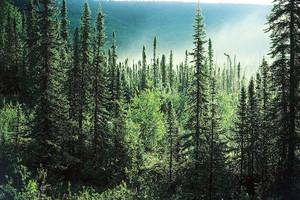
Background
Many people rely on boreal forests for subsistence, cultural practices, biodiversity, and economic development and the boreal biome contributes significantly to global climate stability. As the climate is changing, disturbance regimes, such as wildfires, in the boreal biome are increasing, which impacts the ecosystem’s ability to regenerate. As a result, many boreal ecosystems are shifting to new ecological states, with profound socio-ecological and economic consequences.
It is vital to recognize that landscapes in which fires occur are dynamic and evolving due to the ever-changing drivers of wildfire risk - land use, combustible material, ignition sources and climate change. Thus, integrated and holistic wildfire management programmes are needed that include knowledge about the behaviour of the drivers of fire risk across different landscapes and regions.
This side event was part of the International Boreal Forest Research Association (IBFRA) Conference "A changing boreal biome", which took place from 16 to 20 August 2021. The session brought together scientists and policymakers from boreal countries to:
- Present and discuss the current drivers and trends of wildfires and their socio-ecological and economic implications across boreal countries
- Share best-practices in managing wildfire regimes and applying forest landscape restoration to enhance resilience of the boreal ecosystem to the increasing wildfire risk
- Identify root issues and research gaps to inform policy development and ensure that socio-ecological and economic impacts of wildfires are sufficiently addressed
Find the recording of the event here, and the news release here. For more information about our work on boreal forests, visit our webpage.

